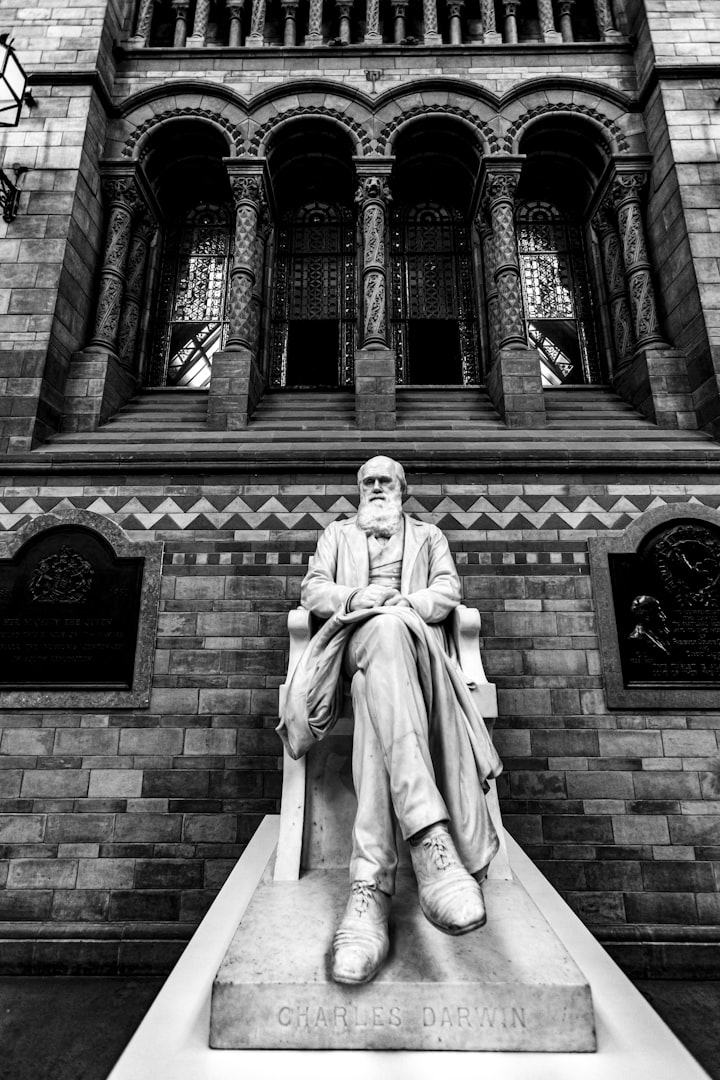Charles Darwin Life biography
Charles Darwin Life biography

Darwin, however, was initially hesitant to share his views and opinions on evolution. After years of scientific research, Darwin presented his theory of evolution in a textbook read at the 1858 Linnean Society conference.
Darwin secretly developed his bold theory in 1837-39 on an international voyage to the HMS Beagle but it was not until two decades later that he fully expressed his views on On the Origin of Species (1859), a book that greatly influenced modern Western society and thoughts. Darwin wrote the book on the construction and distribution of coral reefs and his idea for the construction of the atolls in May 1842, more than three years after working alone, and he wrote the first sketch drawings of his ideas of natural selection. On November 24, 1859, Darwin published a detailed explanation of his theory of evolution, his most famous book On the Origins of Species through Natural Selection.
Darwin was not the first to promote the theory of evolution, but he had great difficulty in proving that the ancient theologians failed. His ingenuity was in his ability to choose and to decide that he would collect all the relevant points and incorporate them into his bright, far-reaching imagination. Darwin lived a double life, and he gained public recognition for his unwavering scientific work, although he had secretly been working on his theory from the beginning.
He also read the writings of Charles Lyell and Thomas Malthus that influenced his first ideas on evolution. Although Darwin has been interested in natural history since his time as a geologist, his inclination is reflected in his record of a five-year exploration journey off the coast of South America. His observations on this journey formed the basis for his evolutionary theory of evolution which he reported on On the Origin of Species by natural selection (London, 1859) and The Descent of Man (London, 1871).
He studied plants, animals, fossils, and the shape of the earth and recorded his observations in a series of notebooks. After publishing On the Origin of Species and Abstracts of the famous Darwin Theory, Darwin moved ahead with his research, research, and writing work.
In 1857 Alfred Russell Wallace sent his dissertation on evolution. Eight years later, in 1854, Darwin was ready and ready to face the challenge of evolution. The theory of evolution by Darwin and Wallace was presented on the same day, in 1858, at the Linnean Society in London.
Charles Darwin's grandfather was the naturalist and philosopher Dr. Erasmus Darwin, who published a four-volume compilation containing his views on the evolution of species. The sick man, with ten of his children who had inherited his physical weakness, spent his entire life working on a special monographic that supported his ideas and spoke with his critics on a series of On the Origin of Species series. His grandfather contributed greatly to the theory of evolution, including the notion that life originated by accident.
Charles Darwin's famous work on the origin of species explains the theory of evolution by natural selection and provides many supporting examples. The views of English physicist Charles Darwin (1809-1882) on evolution and evolution are a unifying concept of life sciences and explain how biodiversity evolves and adapts to its environment.
Darwin's theory of evolution states that living species that survive the so-called evolutionary process - those that evolve and adapt to meet the changing needs of their natural habitat - thrive and reproduce, while the mutant species reproduce or die.
Charles Darwin, entirely Charles Robert Darwin (born 12 February 1809 in Shrewsbury, Shropshire, Victorian England - died April 19, 1882, in Downes, Kent) was an English naturalist whose evolutionary theory of evolution became the basis for modern research. Darwin (1809-1882) was an English-speaking scientist who laid the groundwork for the theory of evolution and proved that man evolved from a lower source. Although Victorian England and the rest of the world are slow to accept evolution as the driving force behind evolution, the concept of evolution gained widespread popularity at the end of Darwin's life.
Charles Robert Darwin (February 12, 1809 - April 19, 1882) was a British naturalist, best known for his work on the theory of evolution by natural selection. Darwin developed the concept of evolution based on his early education, his team of advisers and colleagues, and the many experiences he had during a five-year tour of the HMS Beagle, calling for a fall by changing the original path where natural selection (i.e. Descending Descent) could be achieved. Influenced by the work of Thomas Malthus, Darwin developed the theory that evolution is a fact and that it evolves over time.
Seeing the speed at which natural selection brought about change in evolution, Darwin was influenced by his friend Charles Lyells, who encouraged slow movement. On September 5, 1857, Darwin sent detailed drawings of his ideas to American botanist Asa Gray, including unseen natural selection, human origin, and sexual selection.
Realizing how controversial his ideas were, he delayed publishing them. Darwin encouraged the publication of Wallace's article, which expressed similar sentiments, in writing a book in which he outlined his views on natural selection.
A botanical professor suggested that Charles Darwin join the HMS Beagle on a journey - a journey that would provide his own testimony in the theory of evolution by natural selection. To find the answers to Darwin's difficult questions, he extended his plans for a book entitled Natural Selection, in which he included personal notes. Instead, he decided to publish a more comprehensive and longer book on evolution, in which he would work alone and give no credit to anyone for ideas he had developed over two decades.





Comments
There are no comments for this story
Be the first to respond and start the conversation.